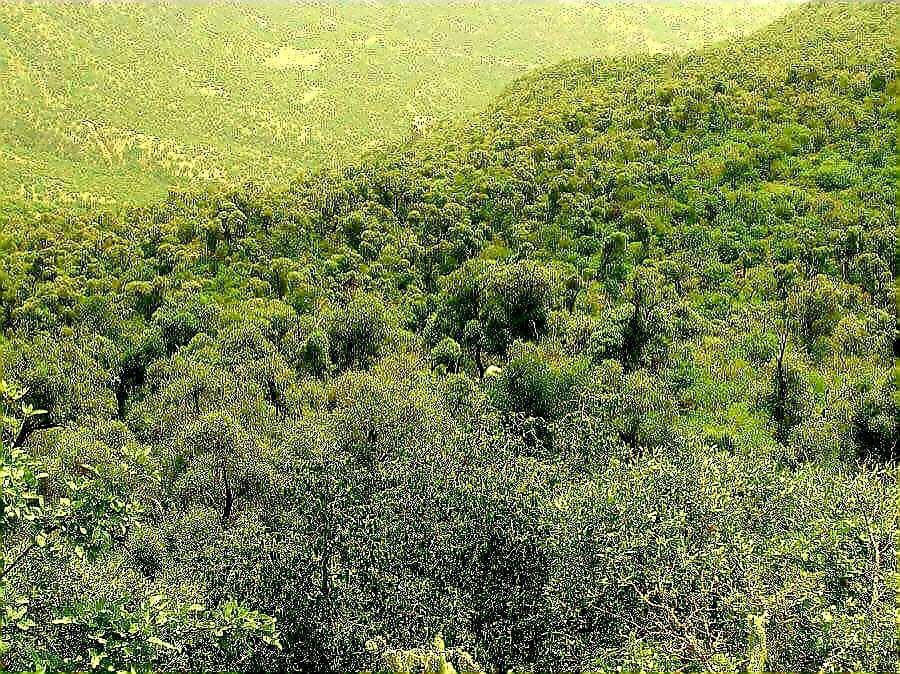
Climate change has been threating our planet earth over the last two decades. Ethiopia is one of the climate change-prone countries. Having understood this, the government has zeroed in seeding planting.
As parts of this bid the country has planted millions of seedlings in the space of the last two years alone. Planting trees has been playing a significant role in rehabilitating deforested areas. Tigray state has brought remarkable change in environmental conservation works in this regard. Beyond planting seedlings, the state has done an exemplary work in preserving forest areas.
Desa’a natural forest area which is found in the eastern zone of Tigray, located 60 km northeast of Mekelle and Afar State, is one of the rare forest areas in the highly deforested Tigray. According to Tigray Agriculture Bureau, Desa’a has been listed as a global biodiversity hotspot and natural resources conservation by the Ethiopian government. This shows its significant role in keeping the balance of nature.
Situated at an altitude of 2700 meter above sea level and with temperate climate Desa’a is just a blessing in the denuded states of Tigray and Afar. It takes the lion’s share when it comes to conserving the ecosystem and biodiversity. It covers 41,100 hectare. It houses 34 medicinal plant species belonging to 33 genera.
Lecturer at Department of Land Resource Management and Environmental Protection with Mekelle University Emiru Berhanu (PhD) says Desa’a has kept biodiversity in Tigray and the people who live there should
be acknowledged for preserving it till this time.
‘‘It’s really amazing to have such dense forest in the extremely denuded state. Now we are undertaking researches on ways of further conservation that would be trendsetter worldwide. We are working
with stakeholders from higher education institutions, media, government and non-governmental organizations. Thus, there are initial exercises to get it registered in UNESCO’s heritage list. This would boost its tourism opportunities and preservation mechanisms,’’ he states.
As to him only 10 percent of the original forest area is dense and well-preserved. Though there are cautious conservation efforts from government, local people and other stakeholders, some irresponsible individuals are blindly depleting this natural blessing. Deforestation, grazing and wildfire
are among the deleterious tasks the forest has been facing, Emiru notes.
There is a continuous deforestation in Desa’a and indigenous plants like olea europae are on the brink of extinction. For rehabilitating the forest, some conservation programs were implemented. For example, there was an attempt to rehabilitate it through soil and water conservation activities. However, this was not successful due to lack of full participation of stakeholders, finance and infrastructural development.
Besides, Tigray Agriculture Bureau has planned to duplicate Desa’a plant species and 450 hectare land in Tigray will be covered by saplings the coming rainy season. As part of it, Desa’a, Higum, Burda and Sheraro forest areas will be rehabilitated using indigenous seedlings. The indigenous plants are being collected from monasteries and forest areas. Trees
like olive, acacia, oak, olea europae and eucalyptus are replete in Desa’a forestry. Also the forest is also home to various animal species.
To sum up, Desa’a forest is one of the survivers in the desertification vulnerable states of Tigray and Afar. It has immense importance in preserving biodiversity and combating climate change. To preserve forest areas like Desa’a and to rehabilitate deforested places, Tigray State has been striving a lot in water and soil conservation activities. Consequently, the state has registered incredible results in making Tigray green again and this was hailed by international community. Tigray had been accolade with gold in the 2017 Future Policy Award for world’s best policies for tackling land degradation. The award has facilitated yet further preservation mechanisms and stimulus to save natural forest areas like Desa’a.
The Ethiopian Herald May 17/2020
BY TSEGAY HAGOS




